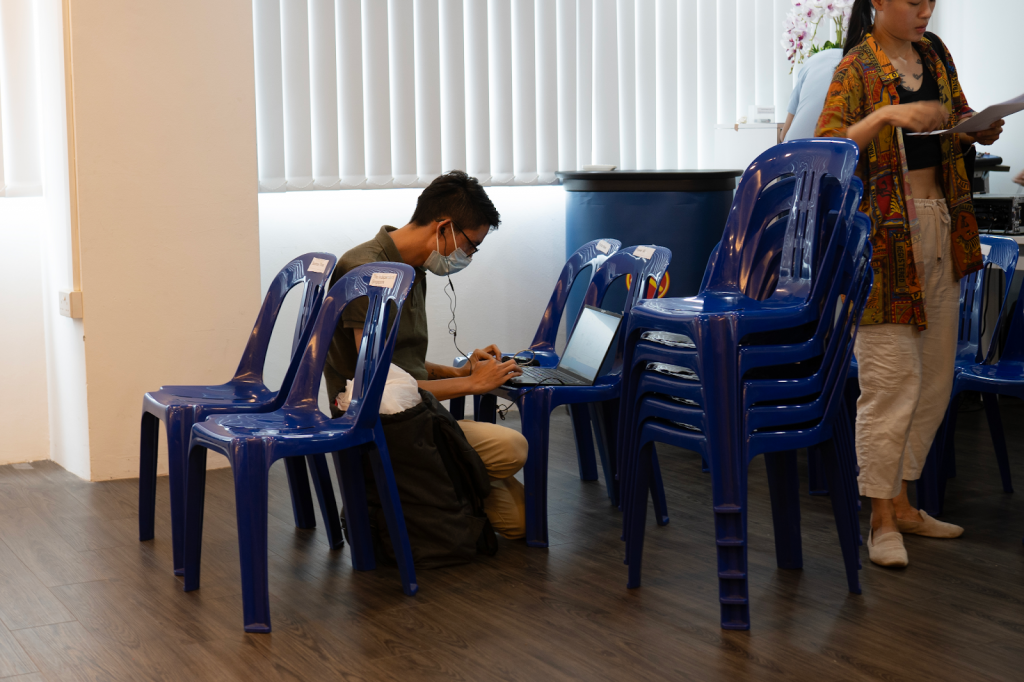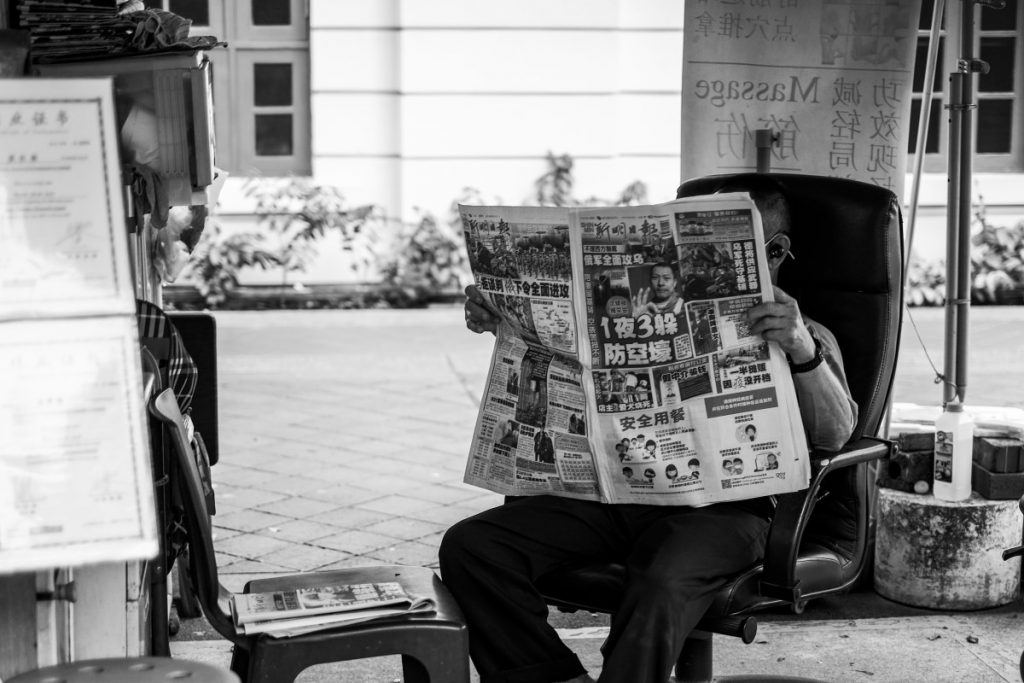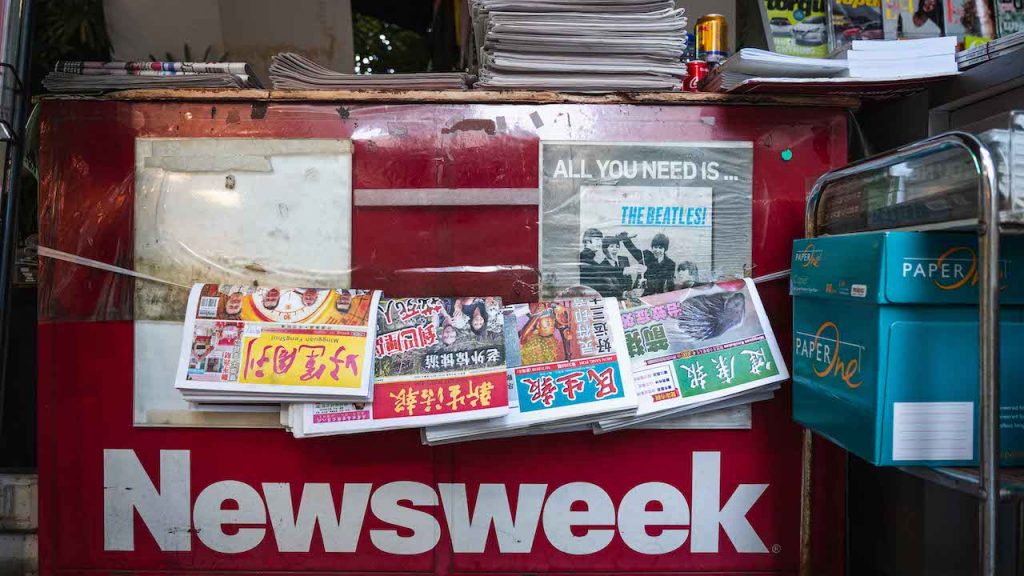Top image: Nathan Koh for RICE Media
I’m about five years into my media career. I am but a greenhorn compared to the veteran journalists out there, who’ve been doing this for decades. But I’m still at the stage where I have to pretend to know what I’m doing when intrepid interns and students ask me about my job.
One of the first questions they usually ask me is, “How do you guys find stories?” The standard answer is a spiel about widening your network, reading up on current affairs, and monitoring social media trends.
The truth, for me at least, is anxiety. A writer is only as good as the stories they pitch. Running out of ideas isn’t an option.
I constantly fear that I’m not ‘smart enough’ for this job. That the well of things to say will run dry. That my colleagues will one day discover I’m a fraud. Even when I’m complimented for my work, I’m afraid I won’t be able to top what I’ve done—and I’ve done plenty.
For the past few years, I’ve thought this was a ‘me’ problem. But after admitting my fears to peers in the industry, I’ve come to find that it’s rare to find a fellow writer who can’t relate.
As former RICE writer Ivan Wu put it, “To write is to grapple with your own insecurities, flaws and neuroses. Maybe this is why I’ve never met a hip and well-adjusted writer in my life.”
Even so, I’d hazard a guess that most of us who write for a living do it because it’s fun. It’s cathartic. And typing words out is infinitely easier than speaking them.
A Habitually Dissatisfied Public
Writing is one thing. Publishing your words and putting your name on your work for all and sundry to peruse is another. Not to mention the fact that a good number of us are introverted bookworms who aren’t used to being perceived.

One of the first lessons the budding writer learns is to grow a tough hide. After all, it seems like the media is never on the ‘right’ side in readers’ eyes.
Stories are either too salacious or too boring to read. People complain when journalists don’t reach out to them. Sometimes, when we do, we’re still put on blast. RICE has, in the past, been accused simultaneously of being a PAP shill and being in cahoots with opposition parties.
Sometimes, it even gets personal. I’ve had internet randos look me up on LinkedIn and pick apart my resume because they didn’t like a story I wrote. Some of them were convinced I worked in branded content and was paid to write the article (no dice on both counts). Others thought it sus that I’d gotten promoted multiple times in a couple of years, saying it was evidence of an artificially inflated title.
Veteran journalist Nicholas Yong, who’s worked for the BBC and Yahoo News, says in a recent tongue-in-cheek LinkedIn post that you aren’t a true journalist until “a random reader picks a quarrel with you online”.
Indeed, two of the reporters I spoke to for this story (they wanted to remain anonymous and avoid naming their publications) admit that their skin has gotten thicker from their years in the industry.
“You learn that you cannot control other people. Even when you do the right things, you cannot please anybody,” says writer Thomas*. He’s worked in entertainment news before and often gets comments like, “Why is this even news?”. It happens so often that it’s like water off a duck’s back at this point.
Cara*, a writer from a local digital news outlet, chimes in to bring up a trend of TikTok creators or influencers calling out news publications for writing about their publicly uploaded content. Sometimes, reporters even get put on blast for reaching out to these people when their online drama becomes newsworthy. Ironically, some TikTokers are now building a following by posing in front of news article screenshots and giving a half-baked commentary.
“I let y’all do your job. Let me do my job too,” she says.
It’s easy to lose sight of what matters, but Riley reminds me what’s important: Our responsibility to our interviewees. Cliche as it may be, a heartfelt note from someone thanking us for telling their story is enough to dull the barbs of public opinion.
The Daily Grind
For the readers who’ve never stepped foot in a newsroom before, I feel like a rundown of what a writer does in a day might be helpful.
Most of us have to pitch article ideas on a daily or weekly basis. The number of stories you have to push out a day varies. Back in my days covering news and lifestyle content for a different publication, it wasn’t unusual for me to file two news stories a day.
Now, I probably write about one feature story a week. When you aren’t writing, you’re probably busy with a hodge podge of other matters: contacting interviewees, transcribing audio recordings, editing junior writers’ work, ideating, attending events, and so on.

There really isn’t much breathing room. For most media publications in Singapore, putting out nothing just isn’t an option, even when it’s a slow news day. When everyone and their mother is pushing out content non-stop, consistency is crucial to stay relevant. That’s when you get people scraping the bottom of the barrel and reporting on semi-viral TikToks.
Riley, who’s worked in lifestyle and online news says: “Back at two of my earlier publications, our value and performance were tied to whatever shiny new thing we could give them. No one cared about writing standards—they just wanted new new new new first first first.”
At one of her first few full-time writing gigs, she was paid a meagre $1,600 but was on a “25/8 grind”, she says. She found herself drinking food replacement shakes because she was too stressed to eat.
“Of course, it’s unhealthy, and in fact, I even see this needless, overbearing pursuit coming at the cost of developing writers’ skills. That’s why you see certain publications with horrendous writing churning out the most low-brow sensationalist ‘news’.”

When your KPI is based on how much content you can put out, it becomes all-consuming.
In one of my recurrent anxiety dreams, I am attending an event or interview and coming away with no usable angles. Just as I’m panicking about losing my job, or worse, upsetting my editor, I wake up.
I’m lucky that things at RICE aren’t as fast-paced, but I’m still constantly on the lookout for story ideas. As our weekly meetings approach and my idea bank remains empty, the anxiety invariably piles up.
Cara, too, falls victim to the “occupational hazard” of perpetually having content on her mind.
“I’m always on alert, even when I’m just, like, at home sitting. I cannot just enjoy TikTok for like, what it is. There’s always this thought of, oh my gosh, it could be an article.”
This constant alertness is also a feature of the system that pits writers against each other. Cara admits that there’s a pressure to be the first, and to pitch the best stories each day. Otherwise, you’re left with the scraps.
“We’re like competing to scan through websites and social media. Whoever sees something interesting pitches it first. And so on a bad day, you might not have a story by lunchtime, you just sit there panicking, because you also know that your editor also gets frustrated that you don’t have a story.”
We’re like Siri—constantly listening and gathering intel until something sets of the “This could be a story” alarm in our brains. It’s all well and good until you find yourself struggling to be present in conversations. Slowly but surely, you become that journalist friend that people turn wary about because anything they say or post can be hooks for a potential story.
All Too Dispensible
Unfortunately, for all the long hours we work, most of us aren’t paid all that much. Each year, fresh salary statistics remind us where we stand—arts, design and media grads continue to have a lower employment rate and starting salary than their peers from other majors.
Maybe it’s the public’s aversion to paying for news content. Or maybe the people running the show don’t value their own writers enough to pay them well.
Significant raises don’t come often, and most of my media peers at the writer level, especially the single ones, often say they’re worried about being able to afford a house.
Riley is especially put off by this. She says: “It tells me that we’re not worth a living wage. It tells me I can’t afford to live in this country because of my career, despite the thousands, sometimes millions, of readers who read my work.”

After all, if pageviews are the currency that the industry operates on, why do many writers remain underpaid despite producing viral articles for their companies?
Sometimes, though, money can’t buy peace. Even though Thomas shares the same financial concerns as Riley, he says he felt compelled to leave his previous publication because of the toxic management.
Even though leaving full-time employment without a job lined up was a gamble, it was worth it. His new boss is decidedly less toxic and much more open to discussing salary matters.
“My mental wellness was severely affected by my last job. Not so much the writing, but really it was the management. I’m thankful that now I’m in a space where I can still continue doing the same things I did before because I loved what I did.”
Even when you strike the jackpot with a great team, though, uncertainty is a constant. Media publications (whether big or small) are in a constant battle: earn enough or get shut down.
Just a couple days ago, Yahoo announced it was laying off all of its Singapore-based editorial and social media staff. We’ve also seen the demise of Buzzfeed News and VICE in recent years.
First World Problems?
I recognise that being able to write for a living is a dream come true for some people. And it is immensely rewarding. In just over a year in RICE, I’ve been able to pick the brains of some bright, young minds, reflect on life from a mud puddle, and observe one of the country’s biggest political scandals from the front seat of a media conference.
But pretending it isn’t challenging would be doing a disservice to my colleagues and to the young people hoping to break into the industry.

The way newsrooms are run, at least the ones I’ve heard about, writers are treated like cogs in a machine. When one quits from burnout, they’re replaced by a younger, fresher, cheaper, not-yet-disillusioned writer.
Even when management is aware of this pattern, it doesn’t mean it’s easy to make changes. As writers, we just have to turn in our drafts on time. The people who keep things running have to balance more things: budgets, resources, and business development.
I’ve seen far too many talented former colleagues leave the industry due to burnout or because they felt underpaid for the amount of work they were doing.
Sure, most of them are doing a lot better now. It’s even tempting sometimes for me to follow in their footsteps.
Hearing about how other media outlets out there are cutting jobs and how some others are using AI to generate articles, is even more discouraging.
Too many of us are working ourselves to the bone for not that much pay, to produce content for people who don’t value us. But we stay because the alternative—doing anything besides writing—feels worse.






